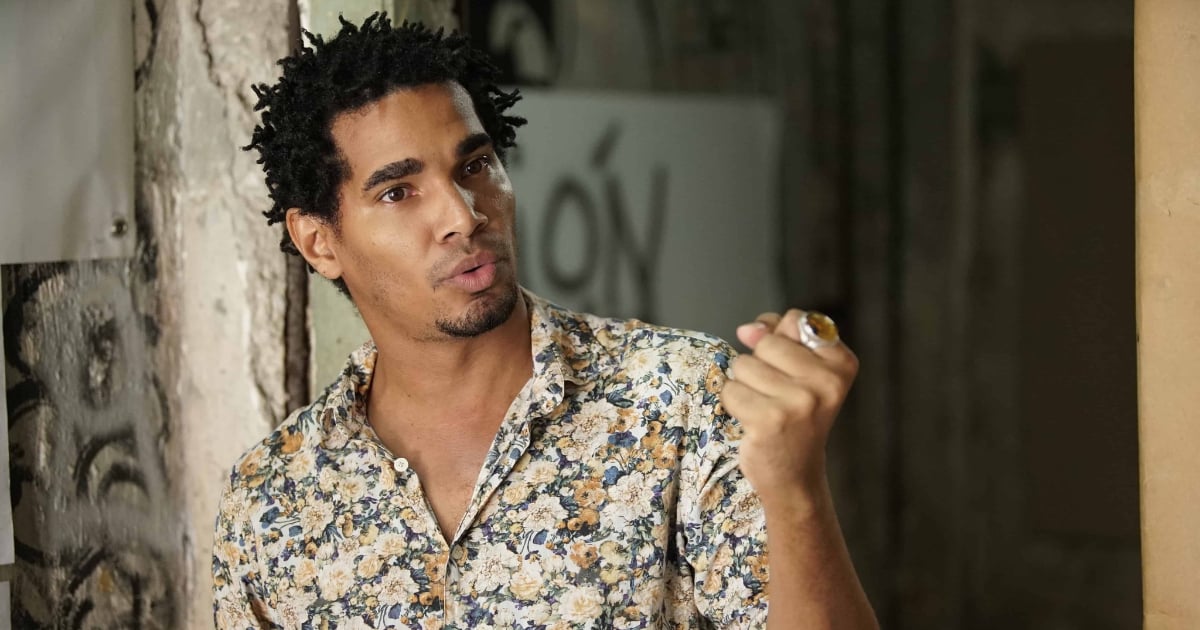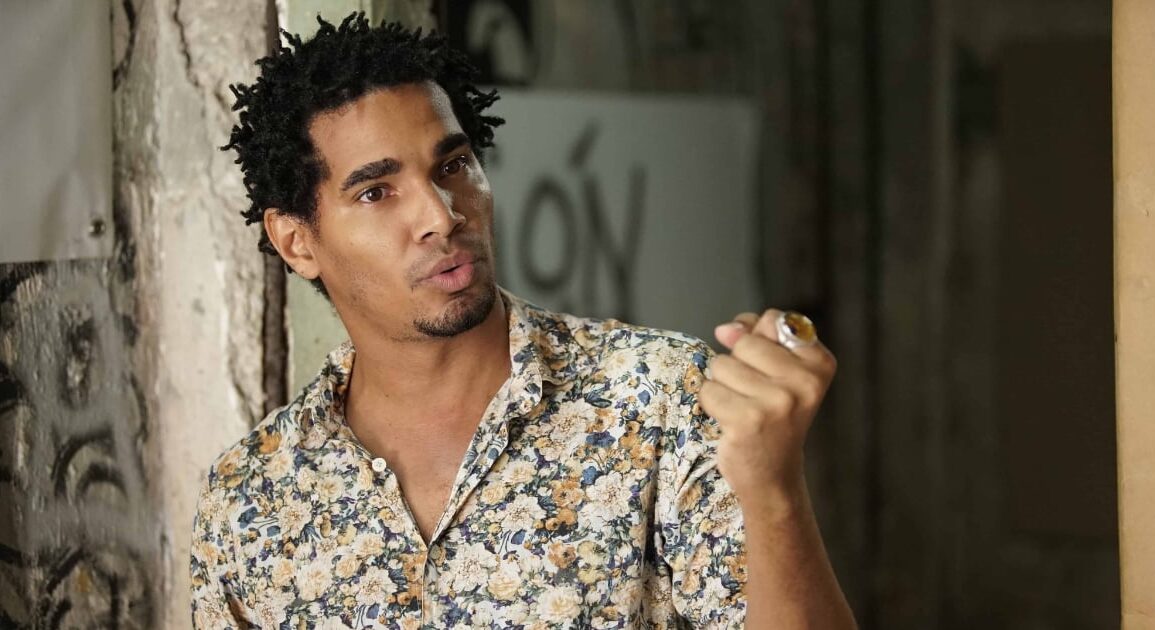
Luis Manuel Otero Alcántara, imprisoned in the maximum-security prison of Guanajay, Cuba, was awarded the Václav Havel International Prize for Creative Dissent on Tuesday, granted by the Human Rights Foundation (HRF) during the Oslo Freedom Forum.
From his cell, the artist sent a recorded message in which he expressed gratitude for the recognition and reaffirmed his commitment to freedom and creation as forms of resistance.
“My voice is the echo of millions who suffer and scream against the Cuban dictatorship today, yesterday, and forever,” Otero Alcántara stated in his message, in which he also described himself as “privileged in this moment of national darkness.”
The artist shared the award, valued at $50,000, with the Syrian Azza Abo Rebieh and the Russian Sasha Skochilenko, both of whom were present at the ceremony in Oslo.
Founder of the San Isidro Movement (MSI), Otero Alcántara has used art as a means to denounce the repression and censorship imposed by the Cuban regime.
He was detained after the protests on July 11, 2021, and sentenced in 2022 to seven years in prison for alleged crimes of offense against national symbols, contempt, and public disorder. In 2022, the UN declared his detention arbitrary and called for his immediate release.
During the forum, Cuban writer Enrique del Risco called for increased international pressure on the regime in Havana. “We cannot expect the regime to relinquish power voluntarily,” he stated. According to 14ymedio, the academic and activist also urged for sanctions against foreign companies that support it, such as the hotel chains Meliá and Blue Diamond.
For her part, Skochilenko, released in 2024 after a prisoner exchange, denounced the repression in Russia and warned: “Losing freedom outside of prison is much more terrifying than losing it inside.”
The Oslo Freedom Forum has been held annually since 2009 and serves as a key platform to amplify voices fighting against authoritarian regimes around the world.
A political prisoner that the world does not forget
Since that July 11, 2021, when he attempted to join the anti-government protests in Cuba and was arrested by regime agents, Otero Alcántara has not been released. But neither the bars, nor the silence that the authorities are trying to impose on him, have managed to silence his voice or diminish his influence.
From his cell in the maximum-security prison of Guanajay, he has continued to project his art and thoughts to the world.
“Lucho porque al cerrar los ojos en sueño profundo mi alma sale a caminar junto a mis seres queridos; ojo, que en dos años en prisión nunca he tenido una pesadilla. Así que nothing has stoned the gifts of creation“, he declared in an audio shared by Amnesty International in February 2024.
“Nothing will take away my drive, and I will not leave my work unfinished,” he added in an audio message sent to the NGO. Weeks later, he described the monotony of his confinement in stark terms: “Every day is the same“.
Even in that context of isolation and repression, international recognition has not been long in coming. In 2022, The United Nations acknowledged that his detention was arbitrary and demanded his immediate release.
In September 2024, the Rafto Foundation of Norway awarded him its prestigious Human Rights Prize, highlighting his “bravery in using art as a form of resistance against Cuban authoritarianism.”
The presentation of the Václav Havel International Award for Creative Dissent this May 2025 reinforces the symbolic and political impact that his figure represents: an artist who resists from the shadows, becoming a global symbol of the fight for freedom of expression under totalitarian regimes.
Throughout these nearly four years, various organizations, intellectuals, and governments have called for his release. More than 50 Cuban and foreign artists and scholars signed a declaration in 2022 demanding that his sentence be overturned.
For its part, Amnesty International has reiterated his status as a “prisoner of conscience,” and in November of that year, launched a global campaign to bring attention to his case.
The health of Otero Alcántara has also raised concerns. In May 2023, family members and activists warned that he had been ill for several days without receiving adequate medical attention, which added to previous hunger strikes and reports of inhumane conditions of confinement.
Far from being forgotten, Otero Alcántara is now a name that resonates in international forums, human rights institutions, and artistic platforms. His art continues to transcend the bars, becoming a form of resistance, a symbol, and an echo of a Cuba that still dreams of freedom.
This post was originally published on this site be sure to check out more of their content.







